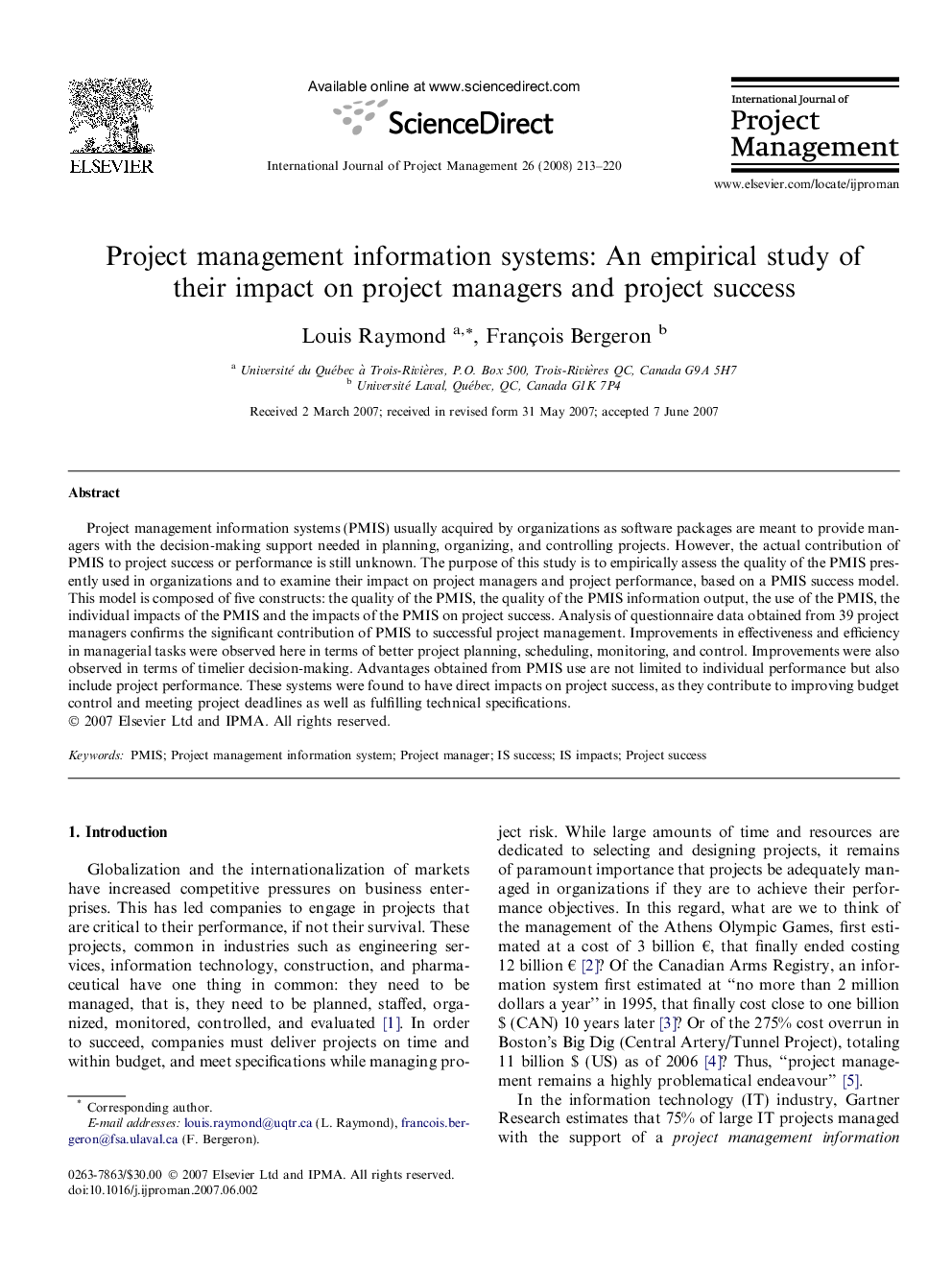| کد مقاله | کد نشریه | سال انتشار | مقاله انگلیسی | نسخه تمام متن |
|---|---|---|---|---|
| 276979 | 1429730 | 2008 | 8 صفحه PDF | دانلود رایگان |
کلمات کلیدی
1.مقدمه
2.مدل و پیشینه تحقیق
شکل 1. سیستم های اطلاعات مدیریت پروژه دربین سیستم های مدیریت پروژه
شکل 2. مدل تحقیق در مورد موفقیت سیستم اطلاعات مدیریت پروژه
3.روش تحقیق
جدول 1. ویژگیهای نمونه
4.نتایج و بحث و بررسی
4.1. آزمون مدل ارزیابی
شکل 3. نتایج ارزیابی مدل تحقیق با حداقل مربعات جزیی
جدول 2. ویژگیهای کاربردسیستم های اطلاعات مدیریت پروژه ازنظر پاسخ دهندگان
4.2.سنجش مدل نظری
جدول 3. پایایی، اعتبار همگرا و اعتبار افتراقی سازه های تحقیق
5. بحث و بررسی
5.1. محدودیت ها
6. نتیجه گیری
Project management information systems (PMIS) usually acquired by organizations as software packages are meant to provide managers with the decision-making support needed in planning, organizing, and controlling projects. However, the actual contribution of PMIS to project success or performance is still unknown. The purpose of this study is to empirically assess the quality of the PMIS presently used in organizations and to examine their impact on project managers and project performance, based on a PMIS success model. This model is composed of five constructs: the quality of the PMIS, the quality of the PMIS information output, the use of the PMIS, the individual impacts of the PMIS and the impacts of the PMIS on project success. Analysis of questionnaire data obtained from 39 project managers confirms the significant contribution of PMIS to successful project management. Improvements in effectiveness and efficiency in managerial tasks were observed here in terms of better project planning, scheduling, monitoring, and control. Improvements were also observed in terms of timelier decision-making. Advantages obtained from PMIS use are not limited to individual performance but also include project performance. These systems were found to have direct impacts on project success, as they contribute to improving budget control and meeting project deadlines as well as fulfilling technical specifications.
Journal: International Journal of Project Management - Volume 26, Issue 2, February 2008, Pages 213–220
